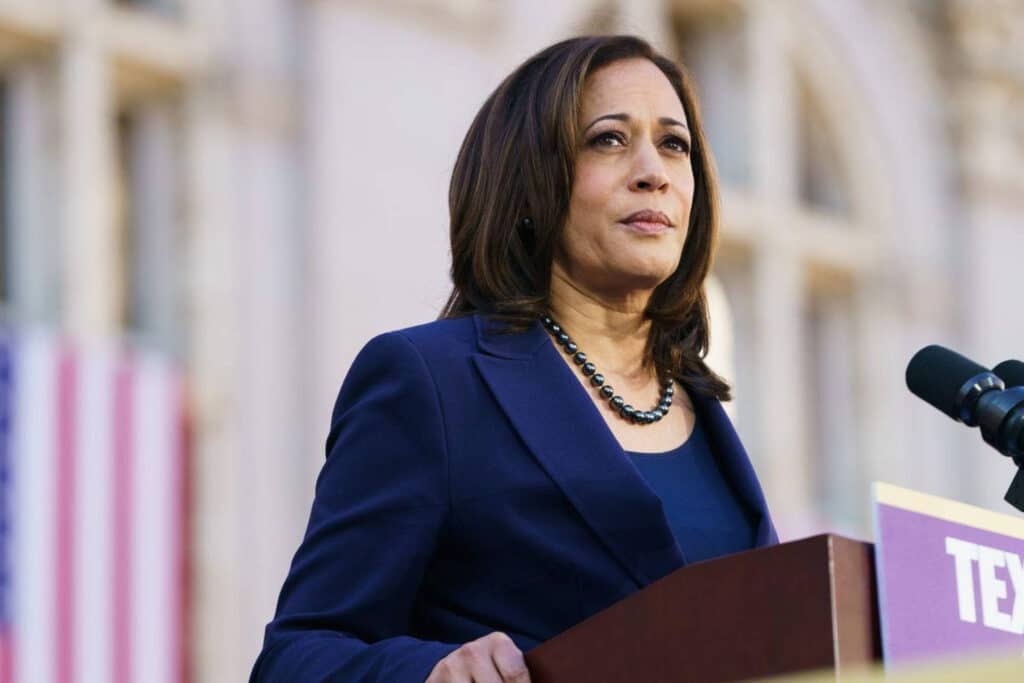As the 2024 presidential election approaches, a new and powerful voting bloc is emerging: Kamala Harris is still in the news. With an estimated 50 million people in the electorate invested in digital assets like Bitcoin (BTC) and Ethereum (ETH), political candidates who overlook this significant demographic may encounter considerable challenges.
Moe Vela, a former advisor to Joe Biden and a senior advisor to the Unicoin cryptocurrency project, recently emphasised the risks candidates face if they fail to engage with the crypto community. In an interview with TheStreet Crypto, Vela underscored the importance of addressing the concerns and interests of crypto investors, especially as the industry continues to expand.
“Kamala Harris, along with other Democratic candidates, needs to recognise the power of the crypto electorate,” Vela stated. “Ignoring the voices of 50 million crypto voters is not just a missed opportunity; it’s a potential political misstep that could have significant repercussions.”
The Growing Influence of Cryptocurrency
The influence of the cryptocurrency market is undeniable. Bitcoin and Ethereum, the two largest cryptocurrencies by market capitalisation, have seen substantial growth and adoption in recent years. As more people invest in digital assets, their economic and political impact becomes increasingly significant. Similar trends are observed globally, with a growing number of citizens in the UK investing in cryptocurrencies, further highlighting the international importance of this trend.

Political Implications for Kamala Harris
For Kamala Harris and other presidential hopefuls, engaging with the crypto community could prove crucial. The vast number of voters involved in the cryptocurrency market represents a significant and potentially decisive voting bloc. As industry analyst and blockchain expert Alex Tapscott noted, “Candidates who fail to address the needs and interests of crypto voters are essentially alienating a substantial portion of the electorate.”
Vela’s insights suggest that the Democratic Party, in particular, may need to reassess its stance on cryptocurrency. Historically, the party has exhibited caution towards digital assets, primarily due to concerns about regulation and market stability. However, as the 2024 election approaches, this cautious approach could be detrimental.
“Kamala Harris has the opportunity to lead the way in bridging the gap between traditional finance and the burgeoning crypto market,” Vela remarked. “By acknowledging the legitimacy of digital assets and proposing thoughtful regulations, she can garner support from an influential group of voters who are passionate about the future of finance.”
Navigating Crypto Regulation
The conversation around cryptocurrency regulation is complex and multifaceted. On one hand, there is a clear need for regulatory frameworks that protect investors and ensure market stability. On the other hand, overly stringent regulations could stifle innovation and drive the industry underground.
Kamala Harris, as a leading figure in the Democratic Party, could play a pivotal role in shaping the future of cryptocurrency regulation in the United States. By taking a balanced approach that fosters innovation while protecting consumers, Harris could appeal to both crypto enthusiasts and more traditional voters.
Blockchain entrepreneur and Bitcoin advocate Andreas Antonopoulos highlighted the importance of this balance, stating, “Effective regulation should not only prevent fraud and protect investors but also encourage the growth and development of the cryptocurrency ecosystem. Political leaders like Kamala Harris have the opportunity to strike this balance and lead the way in integrating digital assets into the broader financial system.”

Economic Potential of Cryptocurrencies
Engaging with the cryptocurrency industry is not just a political strategy; it also holds significant economic potential. The growth of the digital asset market has created numerous jobs and spurred innovation across various sectors, from finance to technology.
“Cryptocurrencies like Bitcoin and Ethereum have the potential to drive substantial economic growth,” Vela explained. “By supporting the development of the crypto industry, political leaders can help create new opportunities for businesses and individuals alike.”
For Kamala Harris, this means recognising the economic benefits of a thriving cryptocurrency market and advocating for policies that support its growth. This could include initiatives to promote blockchain education, investments in crypto infrastructure, and collaborations with industry leaders to develop innovative solutions.
As the 2024 presidential election draws nearer, candidates cannot afford to ignore the burgeoning crypto electorate. With 50 million potential voters invested in digital assets, engaging with this community could be the key to political success. Kamala Harris, in particular, has the opportunity to lead the way in integrating cryptocurrency into mainstream finance, shaping future regulations, and harnessing the economic potential of this rapidly growing industry. By doing so, The BIT Journal believes she can secure the support of an influential and passionate group of voters, ensuring her political viability in the years to come.





























